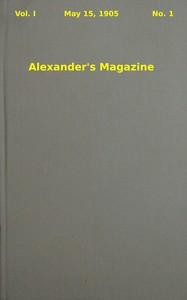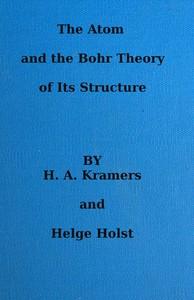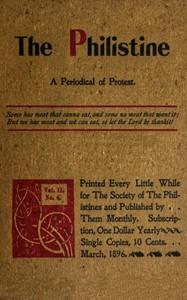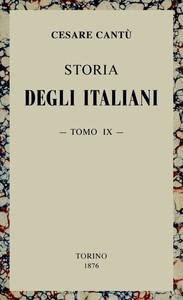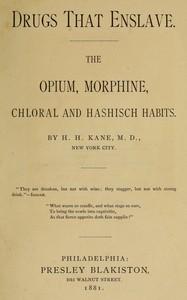|
|
Read this ebook for free! No credit card needed, absolutely nothing to pay.Words: 22343 in 9 pages
This is an ebook sharing website. You can read the uploaded ebooks for free here. No credit cards needed, nothing to pay. If you want to own a digital copy of the ebook, or want to read offline with your favorite ebook-reader, then you can choose to buy and download the ebook.

: Alexander's Magazine (Vol. 1 No. 1 May 15 1905) by Various Alexander Charles Editor - African Americans Periodicals; African Americans Education Periodicals@FreeBooksThu 08 Jun, 2023 ALEXANDER'S MAGAZINE FROM THE BAPTIST MISSIONARY MAGAZINE Mystery becomes opportunity. Mr. Mott's book, "The Pastor and Modern Missions," contains the following summary: "One hundred years ago Africa was a coast line only. Even one generation ago, when Stanley emerged from that continent with the latest news of Livingstone, nine tenths of inner Africa remained unexplored. More than 600 white men have given their lives to explore this one continent. Now, however, H. R. Mill, D. Sc., formerly librarian of the Royal Geographical Society, can well say, 'The last quarter of the nineteenth century has filled the map of Africa with authentic topographic details, and left few blanks of any size.' Bishop Hartzell says: 'Yesterday Africa was the continent of history, of mystery, and of tragedy; today it is the continent of opportunity.' When Stanley, starting in 1874, made his journey of 999 days across Africa, in the course of 7,000 miles he never met a Christian. There was not a mission station, or church, or school on all that track. Now the chain of missions is almost complete from Mombasa to the mouth of the Congo, and there are scattered through inner Africa hundreds of churches and Christian schools and over 100,000 native Christians." "Three distinct Africas are known to the modern world--North Africa, where men go for health; South Africa, where they go for money; and Central Africa, where they go for adventure. The first, the old Africa of Augustine and Carthage, every one knows from history; the geography of second, the Africa of the Zulu and the diamond, has been taught us by two universal educators, war and the stock exchange; but our knowledge of the third, the Africa of Livingstone and Stanley, is still fitly symbolized by the vacant look upon our maps which tells how long this mysterious land has kept its secret." So said Henry Drummond in "Tropical Africa" in 1888; the mystery is now revealed; we see an open door for the gospel of love, light and life. The African work of our Missionary Union is in the Congo Free State. The mission was adopted by us in 1884. There are now 8 stations; 31 missionaries and were last year 306 native helpers; 13 churches with 3,3692 members; 135 schools, with 4,456 pupils. Who says that the next 25 years will surely determine what Central Africa is to be. Considering what has been done in Uganda and Congo land, we ought fully to expect that the gospel tree will have so grown that its branches with healing leaves will overshadow the whole land. WORK OF THE HAMPTON INSTITUTE WRITTEN FOR ALEXANDER'S MAGAZINE Hampton Institute, Va., May 3rd, 1905.--This has been anniversary week at Hampton Institute. The spirit of Armstrong--the courageous and strong--has been all about and in everything. The famous Ogden Party headed by Dr. Robert C. Ogden, trustee of Hampton and of Tuskegee, has been in attendance and has given to the occasion an importance of overwhelming interest. First of all the weather has been perfect. Everything whether of exhibit or address has been in perfect good taste and the 35th anniversary exercises have been voted the most successful in the history of the school--made so in large part because of the presence upon Hampton's grounds of her most famous and eloquent son, Dr. Booker T. Washington, who delivered the principal address upon both days--"Virginia Day," May 2, when nearly 300 White Virginians from Richmond attended in a body--and upon Wednesday, May 3, when the anniversary exercises proper were held. He has been lionized wherever he has gone and has been as cordially sought after by banker, prelate, educator and what not, as by those who are students or have been students of Hampton. A report of Tuesday's exercises may be interesting: The spacious room was handsomely decorated with flags and bunting. The exercises were of an exceptionally interesting character, the opening service being followed by plantation songs from the chorus of Negro and Indian students of the school. J. Enoch Blanton, a member of the class of 1905 in agriculture, read an essay on "Changed Ideas of Farming." Francis E. Bolling, a graduate of the class of 1905, in domestic science spoke of "What Hampton Has Meant to Me," paying a glowing tribute to his Alma Mater. Dr. John Graham Brooks of Harvard University, spoke on the "Fruits of Hampton." He said that as the race problem is probably the hardest with which the world has to deal, and one of which we are the most profoundly ignorant, he would avoid the big and keep near the little. "One of the truest things about Hampton," he said, "is that she is finding out her own business, the real business of Hampton is to learn how a race can be disciplined into independence and how success is to be won. In this Hampton succeeds admirably." Free books android app tbrJar TBR JAR Read Free books online gutenberg More posts by @FreeBooks
: The atom and the Bohr theory of its structure by Holst Helge Kramers Hendrik Anthony Rutherford Ernest Author Of Introduction Etc Lindsay Rachel T Translator Lindsay Robert Bruce Translator - Atomic theory@FreeBooksThu 08 Jun, 2023

: The Philistine: a periodical of protest (Vol. II No. 4 March 1896) by Various - American literature Periodicals; American periodicals; Society of the Philistines (East Aurora N.Y.) Periodicals@FreeBooksThu 08 Jun, 2023
|
Terms of Use Stock Market News! © gutenberg.org.in2025 All Rights reserved.

